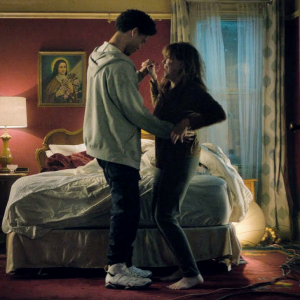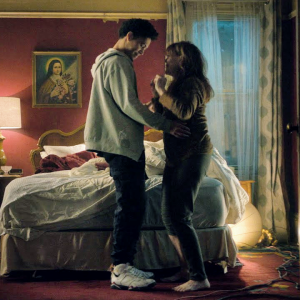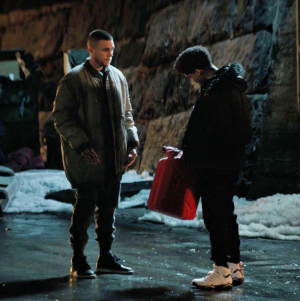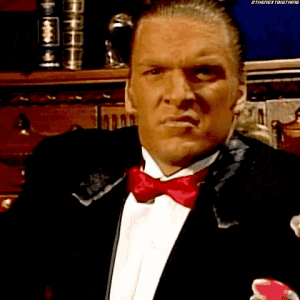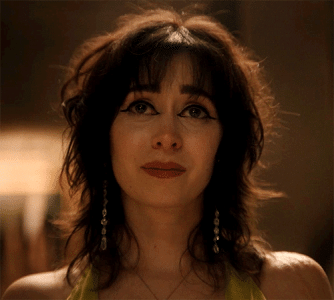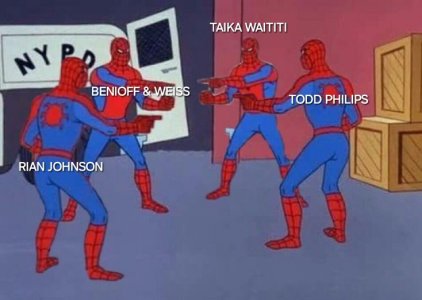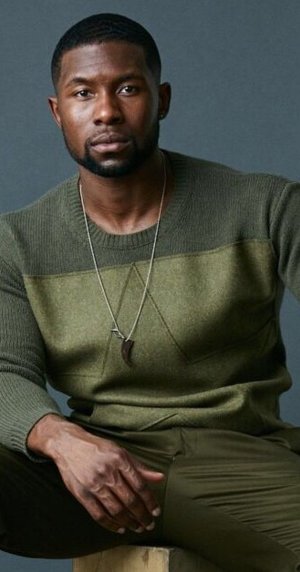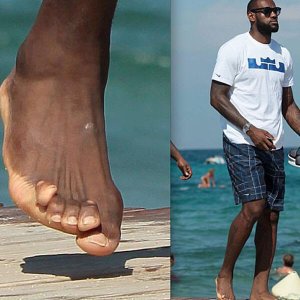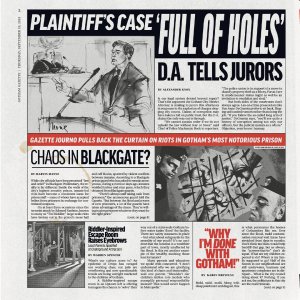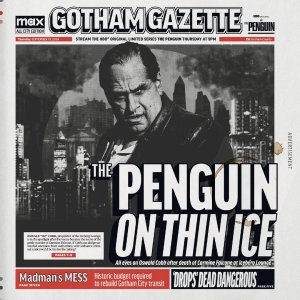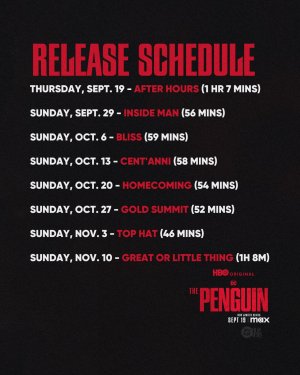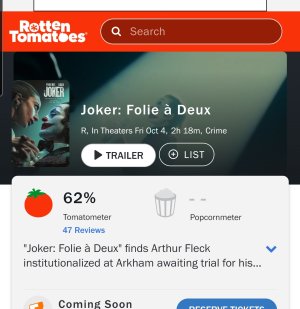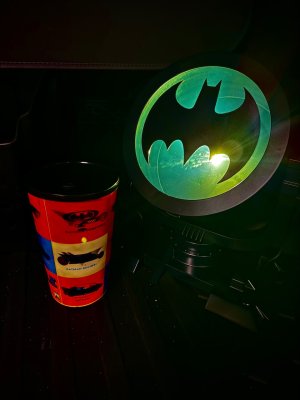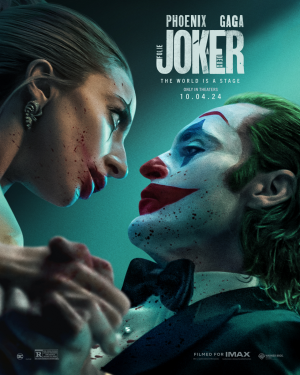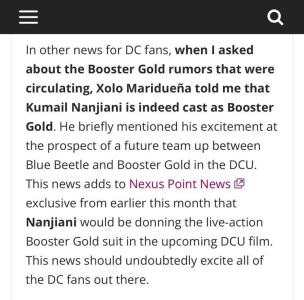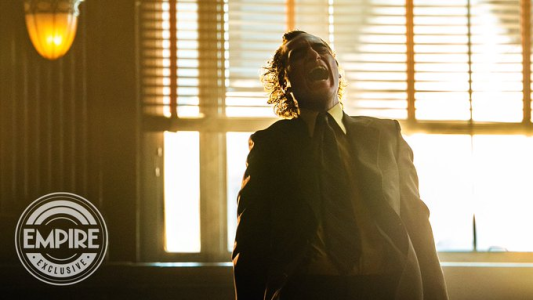Producer Charles Roven Reveals the DC Brain Trust, How Directors Alter Their Plans
By now, folks are very familiar with the way Marvel Studios works. What at first seemed like a very out of the ordinary approach—forming a “Brain Trust” of creative-types to hash out the studio’s inter-connected universe plans—has now become commonplace for any big studio wanting to enact a big multi-franchise blueprint. The one that’s probably of most interest to fans, of course, is the Brain Trust over at Warner Bros., which is putting together that studio’s slate of inter-connected DC Comics adaptations.
Obviously Warner Bros. has a very different approach to how it makes its superhero films than Marvel does, but up until now, little was known about exactly how they set about crafting their own interconnected universe. Luckily, Steve recently got the chance to sit down with Atlas Entertainment President and Founder Charles Roven, who produced Christopher Nolan’s Batman films as well each entry in the current slate of DC adaptations, from Man of Steel to Batman v Superman: Dawn of Justice to the upcoming Suicide Squad and Wonder Woman.
As one of the key producers involved in bringing these massive superhero properties to life, Steve took the opportunity to ask Roven if the Warner Bros. DC Cinematic Universe Brain Trust is indeed made up of himself, Zack Snyder, Deborah Snyder, and DC Comics Chief Creative Officer Geoff Johns:
“I think also very much involved in that brain trust is John Berg, who is the executive vice president at Warner Bros. I would say the Snyders, myself, John Berg, and Geoff Johns would be sort of that Brain Trust… I’m working with great people. They’re all really great people. And not that we don’t—there are many times we agree, and there’s many times we don’t agree [and] we work it out.”
But while these five people may make up the core “brain trust” as it were, Warner Bros. is known for being a filmmaker-driven studio first and foremost, and Roven explained how this philosophy affects the plans that the Brain Trust puts forth:
“The other thing that I really love about what we’re doing is we’re also bringing in really talented other filmmakers and having them come in and create—I call it the sandbox. We’ve got this sandbox of the Justice League DC characters, and we are hoping to create—this series of movies that we’ve announced are somewhat interlinked. The characters move at a throughline that hopefully will take us all the way to Justice League 2, but they also can interact in the other films as well in some way.”
Thus far, the films officially announced leading up to Justice League Part Two are Batman v Superman, Suicide Squad, Wonder Woman, Justice League Part One, The Flash, Aquaman, and Shazam, which all lead to Justice League 2 in 2019. Speaking more specifically about the inter-connectedness of these films, Roven explained that each character’s evolution doesn’t begin and end with his or her own standalone films:
“So if, for example, The Flash movie or the Aquaman film is gonna come out after Justice League 1, it’s not gonna be a completely different character; that character will have evolved from Justice League 1. Wonder Woman, when we see her in Justice League 1, will have evolved from Batman v Superman. Unless we decide that in one of these stories we’re gonna do something that happened in the past and have it be more of an origination story, in which case you’ll realize how that character became what they were in the movie that they were first introduced.”
Is it just me or does Roven seem to be hinting that Wonder Woman may be a prequel of sorts to Batman v Superman: Dawn of Justice? We’ve heard plenty of rumors of the timeline for the Patty Jenkins-helmed film, with the setting being pegged as the Crimean War, World War I, and Present Day in separate reports. Whatever the case, Roven does confirm that the prequel option is very much in Warner Bros.’ arsenal when it comes to crafting these standalone films.
In summing up exactly how the various filmmakers attached to Warner Bros.’ films affect the Brain Trust’s plans, Roven likened it to an alternate route on a road trip that ultimately ends up in the same place:
“So that’s really challenging and interesting, and you lay out a road map but then when you bring somebody else in they kinda go, ‘Well you’re going to San Francisco by Route 5, what if you took the 101?’ [And you go] ‘Well that’s interesting, maybe we should go Route 101. What if we did?’ And so that changes the whole thing and all of a sudden you realize you can actually get to where you need to get to by a whole different methodology than what you originally planned. Or you might decide to blend the routes. And by doing that it’s very fresh. You’ve got very fresh ideas, very interesting ideas. It’s just really a lot of fun if you’ve got really great collaborative minds working together to try to make things better, more interesting, more fun, more provocative.”
Warner Bros. has certainly been focused on finding diverse and singular filmmakers for its various DC movies, with Snyder (Batman v Superman, Justice League), David Ayer (Suicide Squad), Patty Jenkins (Wonder Woman), and James Wan (Aquaman) thus far announced—although the recent news that first-time feature helmer Seth Grahame-Smith is directing The Flash is certainly a departure for the studio in terms of its DC choices—though given WB’s willingness to be more “provocative”, maybe Grahame-Smith’s out-of-left-field hiring is a sign of things to come re: other DC films.
Regardless, it’s fascinating to hear about Warner Bros.’ DC plans straight from one of its key Brain Trust members, and it’s definitely encouraging to hear that the group is more than willing to mix things up if a filmmaker has other ideas.







